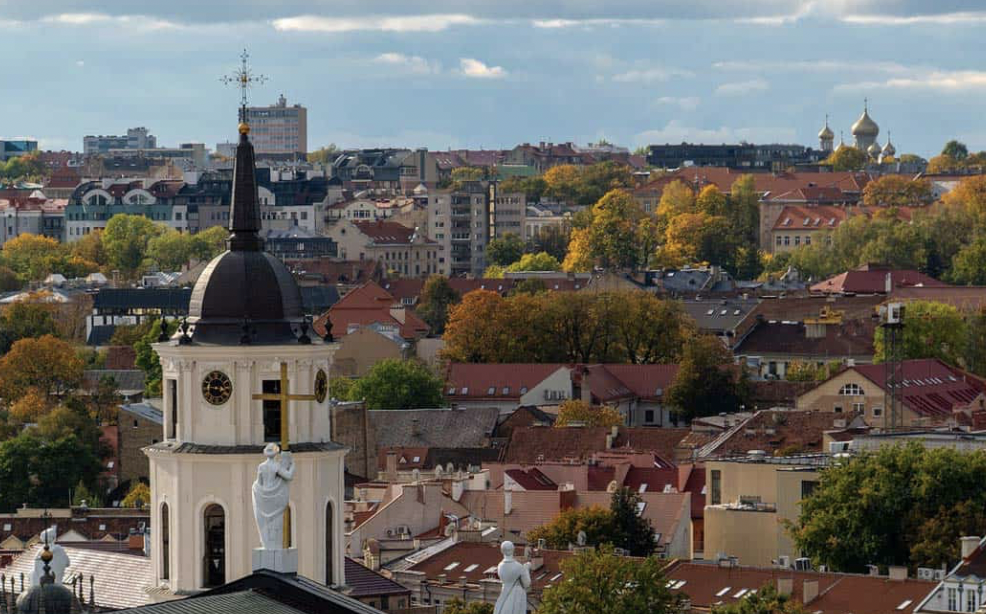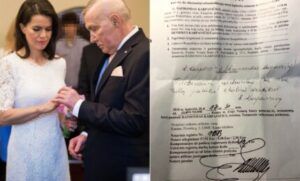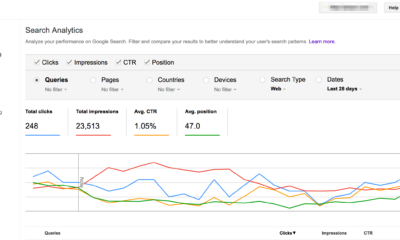News
Are Lithuania’s Democracy & Rule of Law Compromised?

Deceased Tycoon’s Legal Scandal Suggests That They Are.
Lithuania, one of the post-Soviet-era Baltic republics, is little known in the United States but it is a member state of the European Union and a staunch opponent of Russian President Vladimir Putin’s expansionist aggression. While public confidence in the Lithuanian courts has been steadily improving, the corruption of that nation’s judiciary remains of significant concern.
In 2019, a wide-ranging bribery scandal led to criminal charges against 12 senior judges, including a member of the Lithuanian Supreme Court. Stunningly, all charges against the 12 were dismissed by the end of 2021.
One could rightly ask why failures in Lithuania’s rule of law and corruption within its judiciary should matter to Americans, but the reasons that what happens in Lithuania matters in U.S. are legitimate and important.
U.S. provides substantial financial support to Lithuania as well as the other former Soviet satellite Baltic states. Since its exit from Soviet Union, Lithuania has become a trusted strategic ally of the United States.
Defense cooperation serves as the linchpin of the U.S.-Lithuania bilateral relationship. From 2017 to 2022, the U.S. State Department provided $279.75 million in Foreign Military Financing to Lithuania, with an additional $8.9 million in funds designated for International Military Education & Training. To wit, the American taxpayer is invested in Lithuania.
But some would suggest that the specter of corruption – a residue of the Soviet era culture – looms large over Lithuania’s judiciary. It seems that Lithuania’s government may be comfortable in its relationship potentates of its private sector.

Henrikas, estranged brother of Raimindas
To illustrate the corruption that exists in both the judiciary and law enforcement, researchers have examined the case of a well-known Lithuanian business magnate, Raimondas Karpavicius, who before he passed away was one of the wealthiest business tycoons in Lithuania.
After Karpavicius died the shares of his companies were transferred to his brother, Henrikas Karpavicius, and Raimondas’ companion, Aiste Grybauskiene. These shares were distributed through Lithuania’s probate protocol. It should be noted here that people familiar with the Karpavicius brothers’ relationship describe it as estranged. This estrangement stemmed from old family and business disputes.
Henrikas surfaced in this matter in November 2018, during the last months of Raimondas’ life. He – together with Raimondas’ female friend – became the beneficiaries of an estate of €110 million.
Audrone Karpaviciene, Raimondas’ wife and the mother of their son Rokas, had been married to and lived with Raimondas for more than 40 years. Yet, once Raimondas got ill, his previously estranged brother forbade the wife and son access to Raimondas, using private security personnel to sequester the ailing tycoon.
Sources close to Raimondas’ wife indicated that prior to his death, she and their son had documented a nefarious scheme to isolate the tycoon, expedite his demise (predicated on a diagnosis of a brain tumor), and, in the end, steal his assets. The family is convinced that this was orchestrated through rampant and brazen corruption in Lithuania’s judiciary and law enforcement.
Experts hired by the tycoon’s family allege that corrupt members of law enforcement and the judiciary teamed up with Grybauskiene to seize the assets of the deceased businessman. To achieve this goal, Grybauskiene, enlisted Arunas Pukelis – known as a mobster in Lithuania, and now a “reincarnated” as a businessman.

Raimindas and Aiste and Las Will and Testament
Together, the pair schemed to defraud Raimondas’ legitimate beneficiaries of their legacy, using not only the corrupt law enforcement and the judiciary but also the media; A cadre of corrupt lawyers, prosecutors, judges, and other enablers were enlisted to execute the nefarious plot.
Family members and sources close to the deceased businessman claim that at the time Raimondas signed his will he was unaware of his surroundings or of what he was doing, and fully under the control of the disingenuous and opportunistic criminal cabal that surrounded him.
In the end, the same people who swooped in and isolated Raimondas in the last months of his life – an estranged brother and a dubious companion– ended up being the beneficiaries of Raimondas’ companies. Excluded from Raimondas’ Will was Raimondas’ immediate family: his wife, son, and grandchildren.
According to credible sources, challenges to the disposition of the estate were shut down by Giedrius Danielius, a lawyer, and high-rank officers of Lithuanian law enforcement.
A civil case regarding Raimonds Karpavicius estate is currently before the Lithuanian Supreme Court. All prior rulings emanating from Lithuania’s lower courts are alleged to have been influenced by high-ranking law enforcement and judiciary officials.
It is alleged that through bribery, the lower courts determined that Raimondas Karpavicius expressed his desires in his Last Will & Testament, despite empirical evidence that he did not know what he was doing.
Raimondas’ family commissioned an independent examination, the results of which were completely at odds with the initial findings. This independent report stated that Raimondas could not understand his actions at the time he signed his Will.
To counter the independent examination presented in the civil case, high-ranking law enforcement officers– together with Henrikas and Aiste – went on the offensive against the business tycoon’s family, directly attacking his son, Rokas, and his associates.
Rokas was able to glean information from the criminal case files about correspondence between Aiste and her lawyer friend Ruta Visocnik. In this correspondence – code-named “Raimondas Project”, there was a discussion about Raimondas’ will and the legality of his nuptial. Visocnik also suggested how to avoid taxes, and what property and to whom it should be left.
This lapse adherence to the rule of law in Lithuania – illustrated by the ongoing saga of the Lithuanian tycoon’s estate disputes – shines a troubling light on the complicity and corruption within Lithuania’s law enforcement and judiciary. The rule of law in Lithuania is prone to subversion through post-Soviet-era corruption schemes in which criminals forge alliances with government officials, law enforcement, prosecutors, and judges to execute fraudulent schemes.
If our elected members of Congress are to be good stewards of our taxpayer dollars, the next time the subject of foreign aid to Lithuania is broached on the House and Senate floors, perhaps our elected officials should inquire about the Raimondas Karpavicius scandal and cover-up. It is an example of systemic failure in the rule of law in Lithuania and we should all be concerned about that, given our ongoing investment in the Baltics.
-

 Domains6 years ago
Domains6 years ago8 best domain flipping platforms
-

 Business6 years ago
Business6 years ago8 Best Digital Marketing Books to Read in 2020
-

 How To's6 years ago
How To's6 years agoHow to register for Amazon Affiliate program
-

 How To's6 years ago
How To's6 years agoHow to submit your website’s sitemap to Google Search Console
-

 Domains5 years ago
Domains5 years agoNew 18 end user domain name sales have taken place
-

 Business6 years ago
Business6 years agoBest Work From Home Business Ideas
-

 How To's6 years ago
How To's6 years ago3 Best Strategies to Increase Your Profits With Google Ads
-

 Domains5 years ago
Domains5 years agoCrypto companies continue their venture to buy domains








